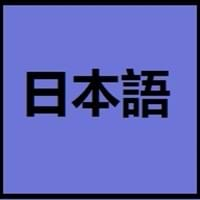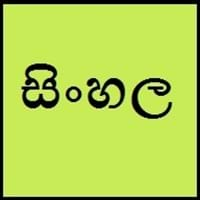Japanese vs Sinhalese
Countries
Japan
Sri Lanka
National Language
Japan
Sri Lanka
Second Language
Not spoken in any of the countries
Sri Lanka
Speaking Continents
Asia, Pacific
Asia
Minority Language
Palau
Not spoken in any of the countries
Regulated By
Agency for Cultural Affairs (文化庁) at the Ministry of Education
Hela Havula (හෙළ හවුල)
Interesting Facts
- In Japanese Language, there are 4 different ways to address people: kun, chan, san and sama.
- There are many words in Japanese language which end with vowel letter, which determines the structure and rhythm of Japanese.
- In Sinhalese language, there are many loanwords from Dravidian languages mainly Tamil, Portuguese, Dutch and English.
- Sinhalese language has it own script/ writing system.
Similar To
Korean Language
Maldivian Language
Derived From
Not Available
Sanskrit Language
Alphabets in
Japanese-Alphabets.jpg#200
Sinhalese-Alphabets.jpg#200
Scripts
Kana
Sinhala alphabet
Writing Direction
Left-To-Right, Horizontal, Top-To-Bottom
Left-To-Right, Horizontal
Hello
こんにちは (Kon'nichiwa)
හලෝ (halō)
Thank You
ありがとう (Arigatō)
ඔබට ස්තුතියි (obaṭa stutiyi)
How Are You?
お元気ですか (O genki desu ka?)
ඔබ කොහොමද (oba kohomada)
Good Night
おやすみなさい (Oyasuminasai)
සුභ රාත්රියක් (subha rātriyak)
Good Evening
こんばんは (Konbanwa)
සුබ සැන්දෑවක් (suba sændǣvak)
Good Afternoon
こんにちは (Konnichiwa!)
සුභ සන්ධ්යාවක් (subha sandhyāvak)
Good Morning
おはよう (Ohayō)
සුභ උදෑසනක් (subha udǣsanak)
Please
お願いします (Onegaishimasu)
කරුණාකර (karuṇākara)
Sorry
ごめんなさい (Gomen'nasai)
සමාවන්න (samāvanna)
Bye
さようなら (Sayōnara)
බායි (bāyi)
I Love You
愛しています (Aishiteimasu)
මම ඔයාට ආදරෙයි (mama oyāṭa ādareyi)
Excuse Me
すみません (Sumimasen)
මට සමාවෙන්න (maṭa samāvenna)
Where They Speak
Kagawa
Sri Lanka
How Many People Speak
Not Available
Dialect 2
Hakata
Not Available
Where They Speak
Fukuoka
Not Available
Dialect 3
Kansai
Not Available
Where They Speak
kansai
Not Available
Second Language Speakers
Not Available
Native Name
日本語
සිංහල (sĩhala)
Alternative Names
Not Available
Cingalese, Singhala, Singhalese, Sinhala
French Name
japonais
singhalais
German Name
Japanisch
Singhalesisch
Pronunciation
/nihoɴɡo/: [nihõŋɡo], [nihõŋŋo]
Not Available
Ethnicity
Japanese (Yamato)
Sinhalese people
Language Family
Japonic Family
Indo-European Family
Subgroup
Not Available
Indo-Iranian
Branch
Not Available
Indic
Early Forms
Old Japanese, Early Middle Japanese, Late Middle Japanese and Early Modern Japanese
Sinhalese Prakrit
Standard Forms
Japanese
Modern Sinhalese
Signed Forms
Signed Japanese
Not Available
Scope
Individual
Individual
ISO 639 6
Not Available
Not Available
Glottocode
nucl1643
sinh1246
Linguasphere
45-CAA-a
No data available
Language Type
Living
Living
Language Linguistic Typology
Subject-Object-Verb
Subject-Object-Verb
Language Morphological Typology
Agglutinative, Synthetic
Fusional
Japanese and Sinhalese Language History
Comparison of Japanese vs Sinhalese language history gives us differences between origin of Japanese and Sinhalese language. History of Japanese language states that this language originated in 1185 whereas history of Sinhalese language states that this language originated in 3. Family of the language also forms a part of history of that language. More on language families of these languages can be found out on Japanese and Sinhalese Language History.
Japanese and Sinhalese Greetings
People around the world use different languages to interact with each other. Even if we cannot communicate fluently in any language, it will always be beneficial to know about some of the common greetings or phrases from that language. This is where Japanese and Sinhalese greetings helps you to understand basic phrases in Japanese and Sinhalese language. Japanese word for "Hello" is こんにちは (Kon'nichiwa) or Sinhalese word for "Thank You" is ඔබට ස්තුතියි (obaṭa stutiyi). Find more of such common Japanese Greetings and Sinhalese Greetings. These greetings will help you to be more confident when conversing with natives that speak these languages.
Japanese vs Sinhalese Difficulty
The Japanese vs Sinhalese difficulty level basically depends on the number of Japanese Alphabets and Sinhalese Alphabets. Also the number of vowels and consonants in the language plays an important role in deciding the difficulty level of that language. The important points to be considered when we compare Japanese and Sinhalese are the origin, speaking countries, language family, different greetings, speaking population of these languages. Want to know in Japanese and Sinhalese, which language is harder to learn? Time required to learn Japanese is 88 weeks while to learn Sinhalese time required is 44 weeks.





